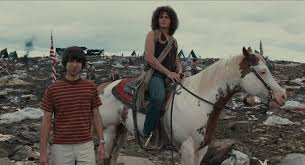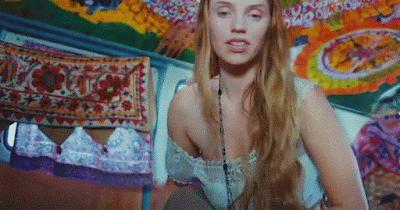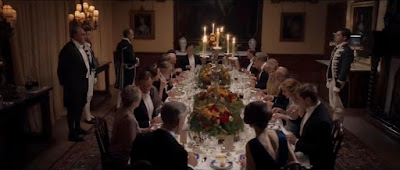Another Plot to Hatch
or
Can They Pullet Off?
It's been 23 years since Chicken Run, the splendid little film that used the basics of The Great Escape in a tale of a flock of chickens penned at the Tweedy Farm, who decide to escape the fate of being the main ingredient in pot pies, decide not to be a brood about it and flock off in a mass eggs-odus. It was funny, clever and—as in the style of its studio, Aardman Animations—up to its beak in fine details, rendered one frame at a time through stop-motion animation.
It's a laborious process, that, despite the work-load, never looked rushed, and, if anything, the animators only made things harder for themselves by having all sorts of activity—seemingly going to each frame's event horizon—to keep track of before moving on to the next 24th of a second. Aardman has been doing this for 34 years, since the creation of their first short film, the Oscar-winning Creature Comforts. Their last film before this was 2018's Early Man, which, while still being clever and all, seemed to have a slight dip in overall quality of the production. The story was just a little off, even if the aanimation remained aastounding.So, what have the plucky chickens from Tweedy's been doing? Chicken Run: Dawn of the Nugget gives the answer. Like any good meta-sequel, there's been some reproducing. Rocky (voiced by Zachary Levi) and Ginger (Thandiwe Newton) welcome an egg to the family, the precocious Molly (Bella Ramsey), who has inherited her father's sense of adventure and her mother's rebellious, stubborn streak. She is doted on by the other ex-Tweedy's, but the parents have to admit Molly is one tough chick to handle.Molly is curious about life off their community island, especially as there seems to be a lot of activity going on around what used to be the Tweedy Farm. But, Ginger discourages this, even as she's coping with her own PTSD about the escape from the previous film and the past treachery of Mrs. Tweedy (Miranda Richardson). But, Molly can't be repressed and one night she makes her way to the mainland to get an answer to her questions. This sends Ginger into a panic and she sets up a squad—a "wild bunch" if you will—to try to find Molly and get her back to the island and coop her up.
Alright, synopsis over—no one wants spoiled Chicken—but one can guess that "Fun-Land Farms" is not what one expects—a more sinister version of how corporate theme parks disappoint. Complications ensue and Ginger's squad takes on an IMF resemblance to stop the evil overlords at "Fun-Land" and return home. It's much too soon for Rocky and Ginger to be empty-nesters.I did a Lambcast this week where we discussed Chicken Run: Dawn of the Nugget and the consensus was that it was ("welllll...") good and all, but not as good as the first one (conceding, of course, that this one lacks the initial element of surprise), and I took umbrage at that. It may not be all the first one was, but it's damned good and is one of the better Aardman movies. Yes, they can do a clunker—I don't remember being quite as enthused with Early Man—and reading the review, the prevailing sentiment was "okay, it doesn't add up to much, but the work involved..." If it was absolutely for naught, all that sweat would have been a waste.
That sentiment roseates the edges of my feelings about this one, but I think the results are far more accomplished...and earned than that Early movie. There are so many details to be discovered—there are whole scenes that look like a "Where's Waldo?" panel with their own little individual stories going on that a re-watch is almost mandatory (it's almost a blessing that the thing is only available on Netflix making repeat viewings effortless). The comic timing is cracking-good, and there are technical pleasures...the eye-twitch of brain-washed chickens, the demo-reel that is so spot on it might have appeared on "Mad Men," the sheer delightful perils that the chickens are challenged with*...and there are moments of just random silliness that bubble-up the best of Aardman's movies. I spent the entire time watching it with a big smile on my face...when my brain wasn't shutting down with the surges of information that were coming off the screen.**
There was a slight disconnect with the character of Rocky—Zachary Levi's goofy self-confidence is a different tone than Mel Gibson's goofy self-confidence—but, for the most part, it all seems of a piece, and one should also state that Aardman has upped its game technically and artistically from the first film while still maintaining that trademark Aardman bubble-off-plumb sensibility.One should never refuse a second helping of Chicken Run.
There was a slight disconnect with the character of Rocky—Zachary Levi's goofy self-confidence is a different tone than Mel Gibson's goofy self-confidence—but, for the most part, it all seems of a piece, and one should also state that Aardman has upped its game technically and artistically from the first film while still maintaining that trademark Aardman bubble-off-plumb sensibility.One should never refuse a second helping of Chicken Run.
Wilhelm Alert at 00:34:34.
** I may have talked about this before, but there have been moments sitting in a theater where the vast overwhelming output of a movie have made me fall asleep. It's not that I'm bored. It's not that I hadn't snoozed the night before. It's that the movie so overwhelms me that I...pass out. This happens with a lot of Terry Gilliam movies (Brazil, Baron von Munchausen, for example) and before I see one of his movies I coffee up so I don't miss anything.























































